March 7, 2024
Conferences
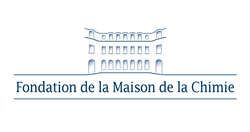
🌐follow Marie-Anne Frison-Roche on LinkedIn
🌐subscribe to the Newsletter MAFR Regulation, Compliance, Law
____
► Full Reference: M.-A. Frison-Roche, "L’enjeu de la confidentialité des avis juridiques internes au regard des « Buts Monumentaux » de la Compliance" ("The issue of confidentiality of in-house legal opinions with regard to the "Monumental Goals" of Compliance"), in L’instauration d’un Legal Privilege à la française. Le temps de l’action au service de la souveraineté et de la compétitivité de nos entreprises, Association française des juristes d'entreprise (AFJE), Association nationale des juristes de banque (ANJB) et Cercle Montesquieu, March 7, 2024, Maison de la Chimie, 28 rue Saint Dominique Paris
____
📝On the same topic, read the article of Marie-Anne Frison-Roche "La compliance, socle de la confidentialité nécessaire des avis juridiques élaborés en entreprise" ("Compliance, the cornerstone of the confidentiality required for in-house legal opinions")
________
Feb. 9, 2024
Conferences

🌐follow Marie-Anne Frison-Roche on LinkedIn
🌐subscribe to the Newsletter MAFR Regulation, Compliance, Law
____
► Full Reference: M.-A. Frison-Roche, "Le renforcement des engagements de Compliance par le renvoi Ex Ante à l'arbitrage international" ("Reinforcing Compliance commitments by referring Ex Ante to International Arbitration"), in L. Aynès, M.-A. Frison-Roche, J.-B. Racine and E. Silva-Romero (dir.), L'arbitrage international en renfort de l'obligation de Compliance (International Arbitration in support of the Compliance Obligation), Journal of Regulation & Compliance (JoRC) and Institute of World Business Law of the ICC (Institute), Conseil Économique Social et Environnemental (CESE), Paris, February 9, 2024
____
🧮see the full programme of this event
____
🌐consult on LinkedIn a general presentation of this event, which links to a presentation of each speech (in French)
____
____
🔲see the slides used to support the presentation (in French)
____
📝This conference and the Working Paper on which it is based are to be linked with the article to be published in the book📘Compliance Obligation
____
🎤see a presentation of the conference "Préalable : ce qu'est l'Obligation de Compliance" ("Prerequisite: what is the Compliance Obligation"), given at the same symposium
____
🎤see a presentation of the conference "Préalable : ce qu'est un engagement" ("Prerequisite: the Commitment"), given at the same symposium
____
► Presentation of the conference: It was initially planned that I would speak on the subject Le renforcement des engagements de Compliance par le renvoi Ex Ante à l'arbitrage international (Reinforcing Compliance commitments through the Ex Ante referral to International Arbitration), but it was agreed with the other organisers of the symposium that after defining the concept of the Compliance Obligation📎
- The inclusion of an offer of arbitration in the field of Compliance implies considering it in a contract as well as in a non-contractual commitment, and studying which category of Compliance Obligation the offer may apply to.
- This insertion benefits from taking the form of a "graduated offer", in a crescendo organised by the company ex ante and offered to the stakeholders: conciliation, mediation and arbitration, in "circles of trust"📎
!footnote-3387 . This is supported by the current French amicable settlement policy. - The result was that I had to prepare a long "preliminary" discussion of what a "commitment" is, without which it seemed difficult to talk in concrete terms about the effective insertion of an offer of arbitration if we did not know whether such links or words had a constraining effect on the person issuing them in relation to the person benefiting from them. After discussions with the other speakers, it became clear that it would be more effective to give a talk devoted solely to the question of the legal definition of commitment. We therefore decided to allocate this second speaking slot to the notion of commitment. Since the written words do not have the same constraints, it will take up the initial construction, insisting on the different supports, either compliance contracts, or associations with compliance clauses, relating to different Compliance obligations, in particular on information or audit or Vigilance📎
!footnote-3388 , because the company must have the legal power corresponding to the mission that the State entrusts to it through Compliance📎!footnote-3389 . - The offer must be carefully drafted to explain its purpose, and its organisation must prove the reality of this purpose: to give access to a judge to people affected by the company's activity, and not to block it.
- This will therefore be available in detail in the forthcoming books:
- M.-A. Frison-Roche (ed.), 📕L'obligation de Compliance
- M.-A. Frison-Roche (ed.), 📘Compliance Obligation
________
🕴️M.-A. Frison-Roche, 🎤Préalable : ce qu'est l'obligation de Compliance (Prerequisite: the Compliance Obligation), in 🧮L'arbitrage international en renfort de l'obligation de Compliance (International Arbitration in support of the Compliance Obligation), 2024.
M.-A. Frison-Roche, Préalable : ce qu'est un engagement
🕴️M.-A. Frison-Roche, 🎤Préalable : ce qu'est un engagement (Prerequisite: the Commitment), in 🧮L'arbitrage international en renfort de l'obligation de Compliance (International Arbitration in support of the Compliance Obligation), 2024.
🕴️M.-A. Frison-Roche, 🚧Compliance and Trust, 2017.
🕴️M.-A. Frison-Roche, 🚧Conceiving Power, 2021.
Feb. 9, 2024
Conferences

🌐follow Marie-Anne Frison-Roche on LinkedIn
🌐subscribe to the Newsletter MAFR Regulation, Compliance, Law
____
► Full Reference: M.-A. Frison-Roche, "Préalable : ce qu'est un engagement" ("Prerequisite: the Commitment"), in L. Aynès, M.-A. Frison-Roche, J.-B. Racine and E. Silva-Romero (dir.), L'arbitrage international en renfort de l'obligation de Compliance (International Arbitration in support of the Compliance Obligation), Journal of Regulation & Compliance (JoRC) and Institute of World Business Law of the ICC (Institute), Conseil Économique Social et Environnemental (CESE), Paris, February 9, 2024
____
🧮see the full programme of this event
____
🌐consult on LinkedIn a general presentation of this event, which links to a presentation of each speech (in French)
____
____
🔲see the slides used to support the presentation (in French)
____
🎤see a presentation of the conference "Préalable : ce qu'est l'Obligation de Compliance" ("Prerequisite: what is the Compliance Obligation"), given at the same symposium
____
🎤see a presentation of the conference "Le renforcement des engagements de Compliance par le renvoi Ex Ante à l'arbitrage international" ("Reinforcing Compliance commitments by referring Ex Ante to International Arbitration") which was finally not pronounced but will be the subject of an 📝article in the forthcoming book 📘Compliance Obligation
____
► Presentation of the conference: Having defined the Compliance Obligation in "Préalable : ce qu'est l'Obligation de Compliance" ("Prerequisite: what is the Compliance Obligation"), I set out to define what a commitment is.
No one doubts that commitments, as words, constitute facts that can engage the liability of companies if there are inconsistencies or lies. The question today is whether a commitment can constitute a legal act, binding in ex ante.
Companies make commitments either to fulfil their legal Compliance obligations, which is simply obeying the law, or to express their own wishes, either for themselves or for others. The cases are often confused, even though the scope is not the same.
If the commitment takes the form of a contract, Compliance is concerned if the contract is used as an Ex Ante Compliance Tool📎
The commitment, a concept that comes more from the Economics of Regulation, was conceived between a Regulatory Authority and a Company: it is the unilateral decision of the Authority that gives legal force to the commitment. Case law confirms this (Conseil d'État (French Council of State)📎
If commitment is central to Compliance, particularly Vigilance, it is because Compliance Law is an extension of Regulatory Law📎
In drawing up a plan, the company is fulfilling its legal obligation. But if we were to consider that it is a commitment, then we would also have to consider that the plan is the result of its will, that it must consult the stakeholders in its preparation, but that the source of the plan is its will: the provisions are not stipulations, are not applications of the law, but unilateral voluntary provisions.
In this respect, and because its source is the will of the company (which does not prevent its co-construction), a plan could contain a "graduated offer" of arbitration.
This offer could be included in commitments that are less regulated by law, such as those made in the context of CSR.
________
🕴️M.-A. Frison-Roche (ed.), 📘Compliance Tools, 2021.
Feb. 9, 2024
Conferences

🌐follow Marie-Anne Frison-Roche on LinkedIn
🌐subscribe to the Newsletter MAFR Regulation, Compliance, Law
____
► Full Reference: M.-A. Frison-Roche, "Préalable : ce qu'est l'obligation de Compliance" ("Prerequisite: the Compliance Obligation"), in L. Aynès, M.-A. Frison-Roche, J.-B. Racine and E. Silva-Romero (dir.), L'arbitrage international en renfort de l'obligation de Compliance (International Arbitration in support of the Compliance Obligation), Journal of Regulation & Compliance (JoRC) and Institute of World Business Law of the ICC (Institute), Conseil Économique Social et Environnemental (CESE), Paris, February 9, 2024
____
🧮see the full programme of this event
____
🌐consult on LinkedIn a general presentation of this event, which links to a presentation of each speech (in French)
____
____
🔲see the slides used to support the presentation (in French)
____
🎤see a presentation of the conference "Préalable : ce qu'est un engagement" ("Prerequisite: the Commitment"), given at the same symposium
____
🎤see a presentation of the conference "Le renforcement des engagements de Compliance par le renvoi Ex Ante à l'arbitrage international" ("Reinforcing Compliance commitments by referring Ex Ante to International Arbitration") which was finally not pronounced but will be the subject of an 📝article in the forthcoming book 📘Compliance Obligation
____
► Presentation of the conference: I have first dealt with the very definition of the Compliance Obligation.
After showing that the relationship between Compliance Law and International Arbitration will naturally develop, because the companies subject to it are international, because they contractualise their legal Compliance obligations and because Compliance is being jurisdictionalised📎
This culture of compliance is achieved either through compliance contracts📎
The obligation of Compliance which then takes concrete form consists for the company not in making effective Ex Ante all the regulations which apply to it (conception of conformity which is at once unreasonable, blind and impossible), but in making its best efforts, which it must make visible (see Compliance Evidence System📎
These Monumental Goals are systemic. The aim is to protect systems from collapse (Negative Monumental Goals) or to make them better (Positive Monumental Goals)📎
The role of the Judge, and therefore also that of the Arbitrator, is renewed.
________
🕴️M.-A. Frison-Roche (ed.), 📘Compliance Jurisdictionalisation, 2024.
🕴️M.-A. Frison-Roche, 📝The Judge, the Compliance Obligation and the Company. The Compliance Evidence System, in 🕴️M.-A. Frison-Roche (ed.), 📘Compliance Jurisdictionalisation, 2024.
🕴️M.-A. Frison-Roche, 📝Compliance Monumental Goals, Beating Heart of Compliance Law, in🕴️M.-A. Frison-Roche (ed.), 📘Compliance Monumental Goals, 2023.
Feb. 1, 2024
Conferences
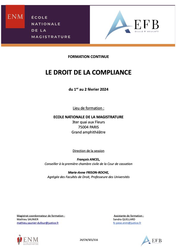
🌐follow Marie-Anne Frison-Roche on LinkedIn
🌐subscribe to the Newsletter MAFR Regulation, Compliance, Law
____
► Full Reference: M.-A. Frison-Roche, "Droit de la compliance : tour d'horizon" ("Compliance Law: Overview"), in Droit de la compliance (Compliance Law), École nationale de la magistrature - ENM (French National School for the Judiciary) in collaboration with the École de Formation professionnelle des Barreaux du ressort de la cour d'appel de Paris - EFB (Paris Bar School), Paris, February 1, 2024.
____
► This conference is given in French
____
🧮see the full programme of this event (in French)
____
🌐consult on LinkedIn a general presentation of this event, which links to a presentation of each speech (in French)
____
____
🔲see the slides used to support the presentation (in French)
____
🎤see a presentation of the other speech about "Compliance et Responsabilité civile : comprendre et raison garder" ("Compliance and Civil Liability: understanding and keeping our heads"), given at the same symposium
____
► Presentation of the conference: Compliance Law is mysterious in itself, because it is still in creation📎
Because the purpose of this conference is to introduce the two days of a training course designed for magistrates and open to lawyers, it only provides an "overview" of, so that we do not get lost in the sprawling regulations, the global mechanisms and the political ambitions that permeate them.
Therefore, without going into any of the subjects, it is about opening up four ways of entering what is a branch of Law that is being born before our eyes:
1. Understanding Compliance Law through "regulations"
2. Understanding Compliance Law through "tools"📎
3. Understanding Compliance Law through "methods"
4. Understanding Compliance Law through "goals"📎
The four approches are legitimate because the four dimensions are articulated in the legal system, notably case law.
But the more positive Law is consolidated, the more its normativity through the goals that give normativity, or even a simplicity without which the whole is not humanly controllable.
These Goals are Monumental and Europe bears them more and better than other areas of the world📎
________
🕴️M.-A. Frison-Roche, 📝Naissance d'une branche du Droit : le Droit de la Compliance (Birth of a branch of Law : Compliance Law), to be published.
🕴️M.-A. Frison-Roche (ed.), 📘Compliance Jurisdictionalisation, 2023.
🕴️M.-A. Frison-Roche (ed.), 📘Compliance Tools, 2020.
🕴️M.-A. Frison-Roche (ed.), 📘Compliance Monumental Goals, 2023.
Feb. 1, 2024
Conferences

🌐follow Marie-Anne Frison-Roche on LinkedIn
🌐subscribe to the Newsletter MAFR Regulation, Compliance, Law
____
► Full Reference: M.-A. Frison-Roche, "Compliance et Responsabilité civile : comprendre et raison garder" ("Compliance and Civil Liability: understanding and keeping our heads"), in Droit de la compliance (Compliance Law), École nationale de la magistrature - ENM (French National School for the Judiciary) in collaboration with the École de Formation professionnelle des Barreaux du ressort de la cour d'appel de Paris - EFB (Paris Bar School), Paris, February 1, 2024.
____
► This conference is given in French.
____
🧮see the full programme of this event (in French)
____
🌐consult on LinkedIn a general presentation of this event, which links to a presentation of each speech (in French)
____
____
🔲see the slides used to support the presentation (in French)
____
📝This conference and the Working Paper on which it is based are to be linked with the article to be published in the book📘Compliance Obligation
____
🎤see a presentation of the conference "Droit de la Compliance : tour d'horizon" ("Compliance Law: overview"), given at the same symposium
____
► Presentation of the conference : It is difficult, even artificial, to separate the presentation of the relationship between Compliance Law and Civil Liability from the consideration given in Compliance to Criminal Liability, sanctions and the whole contractual organisation. But, if only for reasons of time, this will be done.
The chosen method consists of using decisions handed down either under Compliance Law, an emerging branch of Law of which an overview has been given before📎
It always seems that civil liability and Compliance Law are both intimate and have a difficult relationship. To understand them, before embarking on crusades in one direction or another, it is technically necessary to look at the liabilities attached to the application of "compliance regulations" imposed on economic operators, who contractualise the resulting legal obligations and whose third parties may also rely on breaches on the grounds of civil liability. This is the first stage of the analysis. Much is made of the Vigilance technique. Even if this is the advances point of Compliance, we also need to look at the GDPR, the French co-called "Sapin 2" law, Anti-Corruption, etc.
However, civil liability is not the same depending on whether the obligation, legal and/or contractual, in relation to which it arises as a cause of action, gives rise, depending on the case, the text and the person, to an obligation of means or an obligation of result. If there is one principle to bear in mind, particularly in the mind of the judge, it is that, unless a text or clause provides otherwise, an obligation is an obligation of means.
This essential question raises the need to better define the "Compliance Obligation", which consists of prevention and detection, with the economic operator making his "best efforts" with regard to the monumental goals to which the various regulations (thus finding their unity) are normatively anchored. The Ex Ante evidential dimension thus comes to the fore.
In the second part of the analysis, which continues to be based on court decisions, we need to measure the "points of contact" between these "special compliance responsibilities" and the Ordinary Law of Civil Liability. Indeed, because this is a profound movement that runs through the entire legal system, expressing a social demand that distinguishes Western law from the rest of the world, Ordinary Liability Law has long had a preventive dimension and targets operators in a different way, not only because of their power, but also because of their "mission". This is expressly stated in the case law, and these points of contact do not justify opposing the two branches. It would only be if Compliance Law were confused with its instrument, "conformity", and if new principles were invented in an Ordinary Law, that clashes could arise.
In the third stage of the analysis, which can be applied to the principles at stake today, it should be remembered that while there is no general Compliance Obligation under Ordinary Law, which implies detecting and preventing for oneself and for others any breach of any applicable regulation likely to harm others, there is a principle of freedom, as the Conseil constitutionnel (French Constitutional Council) regularly reminds us. Unless we change the legal system so that people become nothing more than subjects who obey all regulations and let it be seen that they do so, with the judge's role being limited to punishing them for not doing so. Indeed, the principle of freedom remains the foundation both of the Ordinary Civil Liability Law (and not of repression, as in Chinese Law) and of the Special Law of Compliance (and not of conformity, as in Chinese law).
In conclusion, it appears that the evolution of Civil Liability, in particular due to the spirit of a Compliance Law that is articulated with it, is leading to a twofold movement: from Ex Post liability to Ex Ante responsibility📎
To accompany this movement, alliances are being forged and must be fostered, which brings Compliance Law face to face with Competition Law, alliances often forged by contract and for which the role of the judge is being renewed, particularly through mediation techniques.
________
Jan. 12, 2024
Conferences
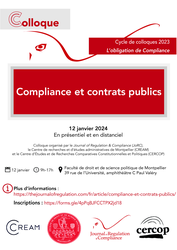
🌐follow Marie-Anne Frison-Roche on LinkedIn
🌐subscribe to the Newsletter MAFR Regulation, Compliance, Law
____
► Full Reference : M.-A. Frison-Roche, "Conclusion. Compliance et contrats publics : une alliance naturelle" ("Conclusion. Compliance and Public Contracts: a natural alliance"), in M.-A. Frison-Roche, C. Gilles & A. Oumedjkane (dir.), Compliance et contrats publics (Compliance and public contracts), Journal of Regulation & Compliance (JoRC), Centre de recherches et d’études administratives de Montpellier (CREAM) and Centre d’Études et de Recherches Comparatives Constitutionnelles et Politiques (CERCOP) of the Montpellier University, Faculté de droit et de science politique de Montpellier, 39 rue de l’Université, Amphiteatre C Paul Valéry, January 12, 2024
____
🧮see the full programme of this event
____
✏️read the notes taken on the spot to draw up the symposium conclusion
____
🌐consult on LinkedIn a general presentation of this event, which links to a presentation of each speech (in French)
____
🧱consult the co-organisation sheet of this event, giving an account of the various speakers
____
► English Summary of the conference: Firstly, it would appear that, as with all the contracts studied in the area of Compliance, public contracts are, for the public authorities or public companies, an instrument through which they implement the Compliance Obligation imposed on them by the laws and regulations. Public bodies involved in public contracts are particularly concerned because of the points of contact, even intimacy, between Compliance Law and the general interest. But the contract, whether public or private, remains in its classic conception what results from the expression of two wills which exchange their consents📎
Secondly, in terms of free will, public contracts can be the means by which public bodies and their co-contractors express their conception of what needs to be done to preserve the future, for example in environmental and social matters. On the contrary, the seemingly technical issue of exclusions from public contracts, whether they be automatic exclusions or optional exclusions, expresses the extent to which economically powerful players (public authorities, municipalities, public companies) take care of each other. In this respect, Compliance Law runs counter to Competition Law📎
But thirdly, the public contract, in that it expresses the general interest by its very nature, its ex ante nature reinforces regulatory action and the nature of Compliance as an extension of Regulation📎
Moreover, fourthly, the public contract appears to be the model for the Compliance Contract. The public contract is a model first of all because of the central place of the general interest. The "Monumental Goals" in which the substantive definition of Compliance Law is anchored📎
The public contract is also a model because the contract is handled by a powerful party, in this case the public entity. The subject of Compliance Law is the powerful company, and only that company, chosen because it is powerful and because it uses that power to achieve the Monumental Goals. In this respect, the "exorbitant powers" that characterise the public contractor are reconstituted either by Compliance laws or by stipulations, which confer on all obliged or voluntary companies - by virtue of CSR, which has many points of contact with Compliance Law as long as it is not confused with obeying the applicable regulations (which is what "conformity" is)📎
The judge is the one who, through contractual litigation, both public and private, will bring to life these Monumental Goals desired by the State, carried by powerful entities (administration, companies), pledge of the Rule of Law📎
These include contractual mechanisms for information, audit, disclosure, control, collaboration, supervision, etc., through which the company, whether private or public, takes charge of the structure it has created, for example the value chain it masters📎
It can therefore be concluded that this logic of a public contract as an instrument of administrative action to achieve goals of general interest, now fully taken up in Compliance Law, must be acculturated into the Ordinary Contract Law and must be preserved in Public Contract Law, which presupposes a new balance with Competition Law, which for a long time carried within Public Law a contract model without concern for sustainability or the collective interest. To achieve this, dialogue between judges is essential. The Conseil d'État (French Council of State) and the Cour de cassation (French Court of cassation) set the example📎
____
📝This conference will be followed by an article, "The public contract, model of the Compliance Contract", which will be published in the book 📘Compliance and contract.
________
🕴️M.-A. Frison-Roche, 🚧Competition Law and Compliance Law, 2018.
🕴️M.-A. Frison-Roche (ed.), 📕Régulation, Supervision, Compliance (Regulation, Supervision, Compliance), 2017.
🕴️M.-A. Frison-Roche, 📝Compliance Monumental Goals, beating heart of Compliance Law, in 🕴️M.-A. Frison-Roche (ed.), 📘Compliance Monumental Goals, 2022.
🕴️M.-A. Frison-Roche, 📝Reinforce the Judge and the Lawyer to impose Compliance Law as a characteristic of the Rule of Law, in 🕴️M.-A. Frison-Roche (ed.), 📘Compliance Jurisdictionalisation, 2023.
🕴️M.-A. Frison-Roche, 📝Reinforce the Judge and the Lawyer to impose Compliance Law as a characteristic of the Rule of Law, in 🕴️M.-A. Frison-Roche (ed.), 📘Compliance Jurisdictionalisation, 2023.
🕴️M.-A. Frison-Roche, 📝Assessment of whistleblowing and the obligation of vigilance regarding International Competitiveness, in 🕴️M.-A. Frison-Roche (ed.), 📘Compliance Monumental Goals, 2022.
Conseil d'État (French Council of State) and Cour de cassation (French Court of cassation), 📗Du droit de la régulation au droit de la compliance : quel rôle pour le juge ?, La Documentation Française, 2024 (to be published).
Dec. 5, 2023
Conferences
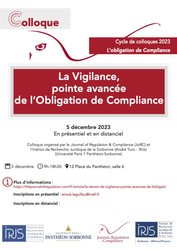
🌐suivre Marie-Anne Frison-Roche sur LinkedIn
🌐s'abonner à la Newsletter MAFR Regulation, Compliance, Law
____
► Référence complète : M.-A. Frison-Roche, "Articulation systémique entre Vigilance, Due Diligence, conformité et Compliance", in M. Mekki, M.-A. Frison-Roche et J.-Ch. Roda (dir.), La vigilance, pointe avancée de l'obligation de Compliance, Journal of Regulation & Compliance (JoRC) et Institut de Recherche Juridique de la Sorbonne (André Tunc - IRJS), Université Paris 1 Panthéon-Sorbonne, 12 place du Panthéon, salle 6, 5 décembre 2023.
____
🧮consulter le programme complet de cette manifestation
____
🚧lire le document de travail bilingue sur la base duquel la conférence a été élaborée
____
consulter les slides accompagnant la conférence
____
► Résumé de la conférence :
____
Cette conférence sera suivie d'un article qui sera publié dans l'ouvrage L'obligation de Compliance.
________
Nov. 30, 2023
Conferences
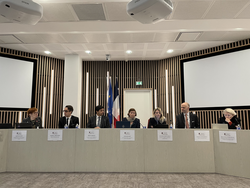
🌐follow Marie-Anne Frison-Roche on LinkedIn
🌐subscribe to the Newsletter MAFR Regulation, Compliance, Law
____
► Full Reference: M.-A. Frison-Roche, "Conclusion", in M. Boissavy, H. Dehghani-Azar, and M.-A. Frison-Roche (dir.), Journal of Regulation & Compliance (JoRC) and Conseil national des Barreaux (CNB), Compliance, vigilance et médiation (Compliance, Vigilance and Mediation), Amphitheatre of the Conseil national des Barreaux, November 30, 2023.
____
🧮see the full programme of this event
________
Oct. 2, 2023
Conferences

♾️follow Marie-Anne Frison-Roche on LinkedIn
♾️subscribe to the Newsletter MAFR Regulation, Compliance, Law
____
► Full Reference: M.-A. Frison-Roche, Participation à la Table ronde "Normes de Responsabilité Sociale des Entreprises (RSE & Devoir de Vigilance)" (Participation in the Round Table "Corporate Social Responsibility Standards (CSR & Duty of Vigilance)"), in Fribourg University, Journée du Droit, Fribourg University, Pérolles site, room C230, October 2, 2023.
____
🧮see the full programme of this event
🎥watch the video of this event (in French)
____
🌐read the report written in French with photos, tags and links on LinkedIn and also with links to each the speech
____
► General presentation of the event : This conference, build around 4 presentations and a debate between the speakers and then with the audience, aimed at explaining and understanding this fundamental movement and the new texts that express it in Switzerland, even if it is French law, such as the so-called 'Vigilance' law of 2017 and the draft European CS3D directive, because on the one hand it is a movement that begins with legal technique and on the other hand the texts in question are extraterritorial in scope, if only because of the notion of 'value chain'. In the first part of this round table, and to set the scene, I will outline the origin and content of the French 'Vigilance' law, the way in which the draft directive draws heavily on it, its relationship with Compliance Law, of which it constitutes the 'advanced point', and the decisive role it gives to the courts, in the general movement of the jurisdictionalisation of compliance. The purpose of this is to allow the discussion to get underway.
🕴️Idris Abdelkhalek, PhD candidate and lawyer, introduced the speakers and led the debate between them and the audience. He took questions from the audience on the intensity of the obligation weighing on companies, in particular between civil liability and criminal liability, between the obligation of means and the obligation of result, and on the way in which the duty of vigilance is applied to specific sectors such as defence.
____
► Presentation of my speech : the subject of which was Presentation of French Vigilance law, European perspective and European Compliance System. My presentation was divided into four points. Firstly, I outlined the state of Law in France, in the novelty represented by the 2017 law known as the "Vigilance" law, whose principles are simple and strong, principles that are situated in the aims pursued, and the way in which this law inspires what is currently being negotiated: the CS3D Directive.
Secondly, I stressed the need for companies to master these often technically complicated corpus, especially if we take into account the link between Vigilance and the CSRD directive on sustainability reporting and extra-financial information.
Thirdly, I have shown that an overall understanding can nevertheless be achieved, and that the technical nature of the 'tools' is better mastered if we place the duty of vigilance within Compliance Law, of which it constitutes the 'advanced point'. All of this anchors its legal normativity in the 'Monumental Goals' it serves, which in Europe are humanistic, since the aim is to protect, now but above all in the future because it is a branch of ex ante Law, the human beings involved in the systems (banking, finance, energy, digital, climate, etc.).
Fourthly, I emphasised that this understanding enables everyone to play their part: political and public authorities, businesses and stakeholders. Even more, and at the heart of the matter, the judge plays an essential role, even in countries with so-called 'continental' Law. I have used current cases as examples. This is just the beginning, and judges need to train, specialise and work in dialogue to achieve this.
____
► Presentation of the other speakers contributions :
🕴️Marion Paradas, Ambassador of France to Switzerland and Liechtenstein, opened the conference and gave a general presentation of the theme. Ambassador Marion Paradas presented the international challenge represented by Law, illustrated here by the duty of vigilance. She emphasised that this is a major issue, both now and in the future, for Swiss companies and French companies based in Switzerland, particularly as this duty extends throughout the "value chain" and in view of the CS3D directive, which will also have consequences for both.
🕴️Isabelle Chabloz Waidacher, Professor at the Faculty of Law in Fribourg and holder of the Chair of Economic Law at the University of Fribourg, gave a Presentation of Swiss Law. In particular, she emphasised the state of Swiss Law, which could have gone further than the 2017 French law known as the "Vigilance" law if the popular initiative reference had led to the adoption of a law, and which currently focuses more on information and transparency obligations, with CSR taking over from there. But she stresses that the reality of value chains will force Swiss companies to take into account the requirements of the European directive currently being adopted.
🕴️Renaud Roussel, Managing Director of Colas Switzerland, presented an entrepreneurial view of the subject. He began by outlining the concrete steps taken by his industrial group in Switzerland and around the world to implement its commitments to protect the environment, for example by ensuring the proper use of materials used in road construction. He also stressed the importance of human rights, particularly in labour relations, in the context of CSR and vigilance. He went on to point out that it was not always easy for a large company to meet its own requirements, or the requirements imposed on it by the law, because in the construction and public works sector in particular it is often small companies that are competing, competitors who do not bear the costs of such obligations.
________
Sept. 28, 2023
Conferences
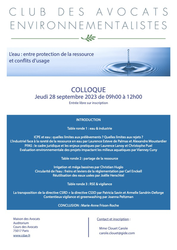
♾️follow Marie-Anne Frison-Roche on LinkedIn
♾️subscribe to the Newsletter MAFR Regulation, Compliance, Law
____
► Full Reference: M.-A. Frison-Roche, "Conclusion", in Club des avocats environnementalistes, L’eau : entre protection de la ressource et conflits d’usage, Maison des Avocats, Auditorium, September 28, 2023.
____
🧮see the full programme of this event
________
Aug. 31, 2023
Conferences
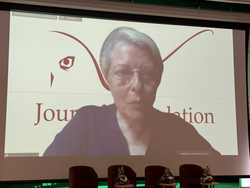
♾️suivre Marie-Anne Frison-Roche sur LinkedIn
♾️s'abonner à la Newsletter MAFR Regulation, Compliance, Law
____
► Référence complète : M.-A. Frison-Roche, "Le prolongement du Droit de la Régulation par le Droit de la Compliance : fixer les buts et superviser les moyens", in XXIV Jornadas Internacionales de Derecho Administrativo (XXIVièmes Journées internationales de Droit administratif), Université Externado de Colombie, Bogota, 31 août 2023.
____
🧮consulter le programme complet cette manifestation
Présentation de la conférence : Dans le temps imparti, il n'est pas discuté de la façon dont les États se transforment pour devenir des "États Régulateurs" : cela est exposé dans d'autres contributions. Il est donc ici pris pour acquis que les Etats sont "Régulateurs" à la fois dans leur conception même (c'est-à-dire qu'ils accompagnent l'économie de marché pour l'infléchir en s'appuyant sur elle) et dans des techniques nouvelles, notamment la mise en place des Autorités de Régulation. C'est ainsi que naît une branche spéciale du Droit : le Droit de la Régulation. Celui-ci demeure encore ancré dans le Droit administratif à beaucoup d'égard (cela non plus n'est pas discuté ici).
En quelque sorte, la présente contribution porte sur l'étape suivante, qui consiste au développement de cette sorte d'étape qu'est l'Etat Régulateur, qu'exprime le Droit de la Régulation, dans le Droit de la Compliance. Il convient de conserver ce terme américain de "compliance", malgré toutes ses ambiguïtés, parce que l'instant on n'en a pas trouvé d'autres ...
La conférence est bâtie en dix points, succinctement développés dans le document de travail sous-jacent.
____
🚧Lire le document de travail sous-jacent à la conférence.
________
June 19, 2023
Conferences
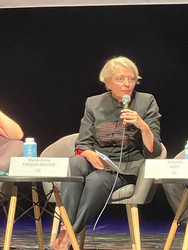
♾️ follow Marie-Anne Frison-Roche sur LinkedIn
♾️subscribe to the Newsletter MAFR Regulation, Compliance, Law
____
► Full Reference: M.-A. Frison-Roche, participation in the panel "Vigilance (due diligence)", in International Law Association (ILA), 150th Anniversary Symposium of the ILA/ADI, Paris, 19 June 2023.
____
🧮See the full programme of this event
________
June 14, 2023
Conferences
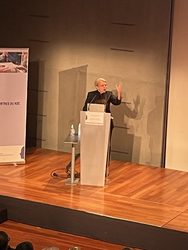
🌐follow Marie-Anne Frison-Roche on LinkedIn
🌐subscribe to the Newsletter MAFR Regulation, Compliance, Law
____
► Full Reference: M.-A. Frison-Roche, "L'esprit des Lois en matière de vigilance" ("Spirit of Law in Vigilance (Due Diligences) matters"), in Haut Conseil du Commissariat aux Comptes (H3C), Réalités et défis de la CSRD - Perspectives du devoir de vigilance, Paris, 14 June 2023.
____
🎥watch the video of a part of the speech (in French)
____
🧱read the description of the speeches of other speakers of this panel (in French)
____
The speech took place during the third-round table devoted to the Perspectives du devoir de vigilance (Perspectives of the duty of vigilance), the first round table having been devoted to the lessons that the DPEF can provide for the CSRD, and the second to the transposition work of the CSRD.
🧮See the full programme of this annual event (in French)
____
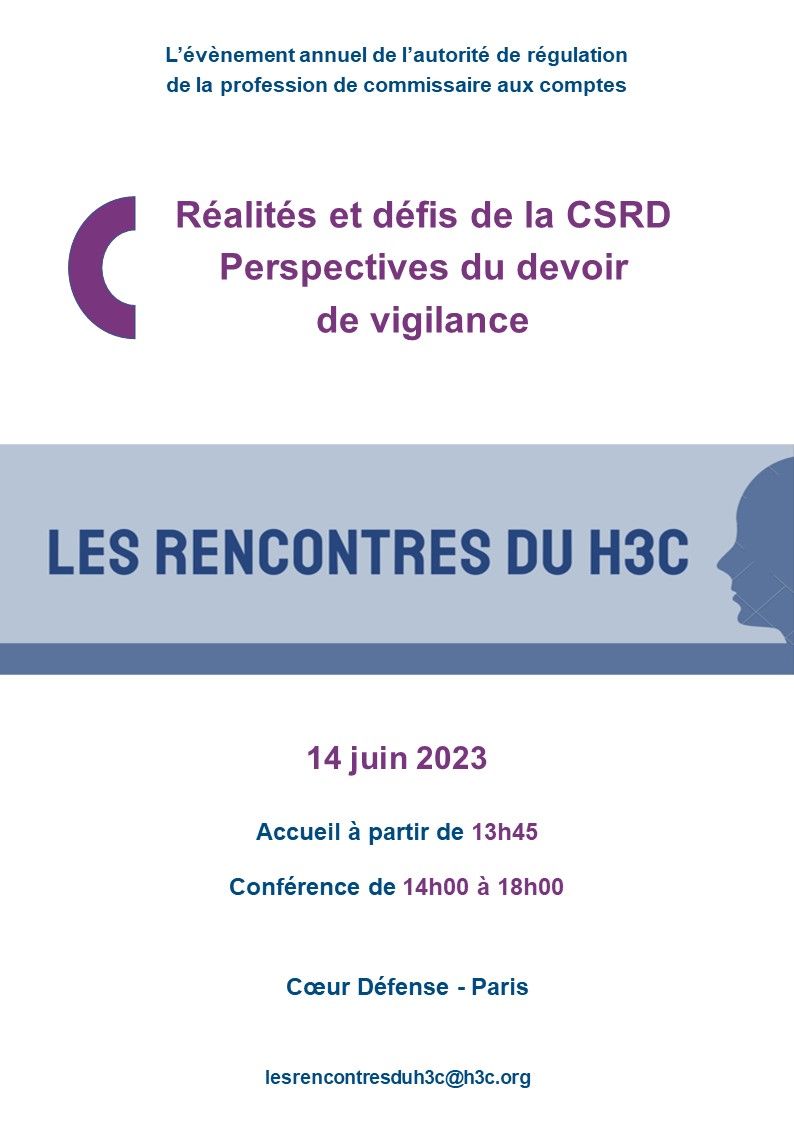
► English summary of the speech: In consideration of and in addition to what has been said, explained and even affirmed by other speakers, I have emphasised that 'vigilance" laws is not a 'regulation' like any other, but the leading edge of a very vast movement, Compliance Law, in which the 2017 French law is the driving force. For its application, the Judge, who is at the centre because of the will of the Legislator, is already taking into consideration the CS3D, the twin text of the CSRD.
The texts must not be seen in isolation. If we isolate them from each other, they become almost incomprehensible, their meaning appearing uncertain, even threatening: we need to understand the spirit of these texts, which are indeed new, because they aim to provide answers to the new world we have entered. We must all rejoice in this political ambition, which is taking a legal form, and work to make it efficient: Legislators, companies, auditors, Regulators and Judges.
If we do not stop at the letter, which would be to reduce Compliance to conformity, whereas Compliance Law, particularly Vigilance, is the extension of Regulation, finds its meaning in the Goals, we see that the French law of 2017, known as the "Vigilance law", which copies all the techniques of the French law known as "Sapin 2", gives goals simple to understand to the companies subject to the Legislator's will: detect and prevent environmental and human rights abuses in the value chains.
The logic is therefore Ex-Ante.
This Ex-Ante logic is retained by the CS3D directive.
The Judge is central to it. But the responsibility which the NGOs will ask him to trigger is itself an "Ex Ante responsibility", the Compliance trials being like "accountability" trials, to ensure that companies act in accordance with the Goals set by the Legislator.
This is transforming the role of the Judge, who must find effective solutions for the future. The discussion and the adversarial principle will become more important. Mediation will be encouraged. Stakeholders and the company will have to work together, and this method, which was intended by the Legislator for drawing up the vigilance plan, will be continued in the supporting legal proceedings.
This will also transform the company, and the role played by those who accredit the information on the company's actions and long-term strategies: auditors therefore have a central role to play.
________
June 14, 2023
Conferences
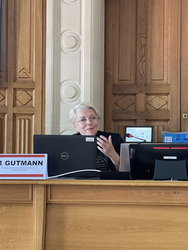
♾️follow Marie-Anne Frison-Roche on LinkedIn
♾️subscribe to the Newsletter MAFR Regulation, Compliance, Law
____
► Full Reference: M.-A. Frison-Roche, "Compliance et droit processuel" ("Compliance and Procedural Law"), in B. Deffains, M.-A. Frison-Roche and J.-B. Racine (dir.), Journal of Regulation & Compliance (JoRC) and University Panthéon-Assas (Paris II), Compliance : Obligation, devoir, pouvoir, culture (Compliance : obligation, duty, power, culture), University Panthéon-Assas, Salle des Conseils, 14 June 2023.
____
🧮See the full programme of this event
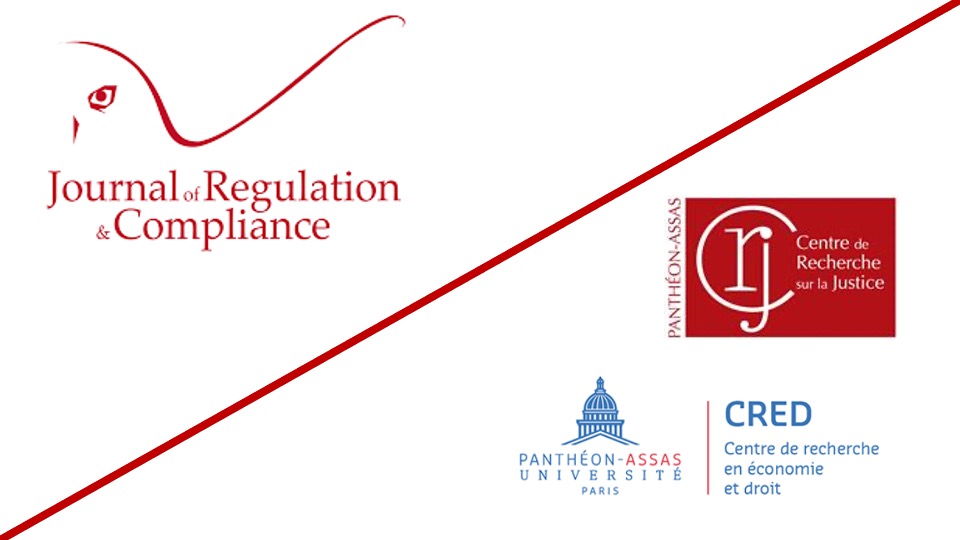
____
🎤see the other speech made during the first day of this symposium : "L'obligation de compliance, entre volonté et consentement : obligation sur obligation vaut" ("Compliance Obligation, between will and consent: obligation on obligation works")
____
► Summary of the conference: After referring to the chapter in the book Compliance Jurisdictionalisation, which deals more specifically with Procedural Law
The first development relates to the fact that the relationship between Compliance Law and Procedural Law is very difficult because it is often said that they simply have nothing to do with each other, or that they have everything to dislike each other. This is because Compliance is often reduced to processes, and to the mechanical place that algorithms could take in it, in taking care of everything.
Compliance would even have the purpose and effect of ensuring that the company and its managers never come into contact with a judge, the public prosecutor being their best ally in this respect.
Secondly, I recalled the very common idea that Procedural Law is a kind of 'tribute' that the rule of Law demands, which certainly weighs down companies when compared with companies living in systems in which there's not not such a price.
But many stress that Procedural Law could become a model. This can be justified and technically anticipated because it has already happened in Regulation Law, and Compliance Law is the deployment of it
In the third stage, I worked on the alliance between the two, with the procedure (rather than the process) modifying compliance and thereby reinforcing it, evoking the way in which this can manifest itself technically
In the fourth step, I looked for what would be the "naturally appropriate procedure" for Compliance: one that takes into account the duration and the development of "solutions", to which the notion of "sustainability", which is central in the substantive Law of Compliance, refers.
In a fifth stage, and devoting more time to this, I have pointed out where innovation should be the strongest: the proof, the probatory obligation being the "part totale" ("total part") of the compliance obligation. This major issue will be the subject of a series of symposiums held in 2024.
________
See the articles that are part of the Second chapter of the book 🕴️M.-A. Frison-Roche (ed.), 📘Compliance jurisdictionalisation, 2023 :
- 🕴️N. Cayrol, 📝General Procedural Law in Compliance Law,
- 🕴️F. Ancel, 📝The procedural principle of compliance, a new trial leading principle?,
- 🕴️B. Sillaman, 📝Privilege and Cooperation: Procedural Lessons Learned from the U.S. for Global Application,
- 🕴️A. Linden, 📝Motivation and publicity of the decisions of the restricted committee of the French Personal Data Protection Commission (Commission nationale de l'informatique et des libertés-CNIL) in a compliance perspective,
- 🕴️S. Scemla and 🕴️D. Paillot, 📝The supervisory Authorities face difficulties to apprehend the Rights of the Defense,
- 🕴️M.-A. Frison-Roche, 📝Adjusting by the nature of things General Procedural Law to Compliance Law.
🕴️M.-A. Frison-Roche, 🚧From Regulation Law to Compliance Law, 2017.
🕴️M.-A. Frison-Roche, 🎤Le rôle du Juge dans le déploiement du Droit de la Régulation en Droit de la Compliance (The role of the Judge in the deployment of Regulatory Law in Compliance Law), in 🧮De la Régulation à la Compliance : quel rôle pour le Juge ?, 2023.
Notably in this perspective, 🕴️M.-A. Frison-Roche and 🕴️M. Boissavy, 📕Compliance et droits de la défense. Enquête interne - CJIP - CRPC (Compliance and Due Process. Internal Investigation - DPA), 2024.
June 13, 2023
Conferences
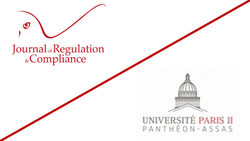
♾️ suivre Marie-Anne Frison-Roche sur LinkedIn
♾️s'abonner à la Newsletter MAFR Regulation, Compliance, Law
____
► Référence complète : M.-A. Frison-Roche, "L’obligation de compliance, entre volonté et consentement : obligation sur obligation vaut", in B. Deffains, M.-A. Frison-Roche et J.-B. Racine (dir.), Journal of Regulation & Compliance (JoRC) et Université Paris Panthéon-Assas, Compliance : Obligation, devoir, pouvoir, culture, Université Panthéon-Assas, Salle des Conseils, 13 juin 2023.
____
🎤consulter la présentation de l'autre conférence faite lors de la seconde journée de ce colloque : "Compliance et Droit processuel"
____
🧮Consulter le programme de cette manifestation
____
► Présentation de la conférence : Le Droit des contrats noue le "consentement" et la "volonté", puisque le consentement est ce qui manifeste la volonté d'une personne, en marque la liberté et l'engagement, en constitue la trace et la preuve. En 1995, j'ai montré que le Droit économique avait distingué le consentement et la volonté, pour rendre les consentements autonomes et en faire des marchés, notamment dans le Droit de la concurrence et le Droit financier📎
Puis en rendant hommage à Pierre Godé qui avait fait sa thèse sur la volonté📎
Mais la difficulté à comprendre le système général du Droit de la Compliance vient de la confusion souvent faite entre celui-ci et ce qui n'est qu'un de ses outils : la conformité. Or, la conformité est l'obligation pour un sujet de droit, certaines entreprises de donner à voir en Ex Ante qu'elles obéissent activement à la réglementation qui leur est applicable. J'ai montré en 2016📎
Les entreprise qui sont sujets du Droit de la Compliance ne sont alors pas toutes les entreprises, ni celles qui seraient "coupables" par avance, mais celles qui "sont en position" d'atteindre les buts : les "entreprises cruciales", notion que j'ai proposée en 2006📎
Il demeure que les entreprises, qui entrent dans le commerce juridique par leur personnalité juridique, peuvent elles-aussi exprimer leur volonté et non pas seulement consentir. Elles le font non seulement dans la mise en œuvre, ce que la Volonté du Législateur leur demande, mais encore en édictant des Buts, là où se loge la normativité du Droit de la Compliance.
C'est là où l'on doit affirmer dans un nouvel adage : Obligation sur Obligation vaut.
En effet, si l'entreprise exerce sa puissance juridique non seulement sa capacité à obéir (consentement), ce qui est une puissance faible, mais encore en exerçant leur puissance pour l'effectivité, l'efficacité et l'efficience des Buts Monumentaux du Droit de la Compliance, les systèmes et les êtres humains qui y sont impliquées en sont les bénéficiaires.
C'est pourquoi dans une conception générale du "pouvoir" que j'ai dessinée pour rendre hommage à Emmanuel Gaillard qui avait consacré sa thèse à cette notion📎
Le sujet premier devient alors en théorie et en pratique l'articulation entre la Volonté du Législateur (la "réglementation" applicable) et la Volonté des entreprises cruciales. Ce point sera particulièrement développé lors de la conférence.
La dimension probatoire de la question sera plutôt développée le lendemain dans la conférence qui, dans le cadre de ce cycle portant sur L'Obligation de Compliance, portera sur Compliance et Droit processuel.
_____________________________
La conférence est construite en trois temps :
III. OBLIGATION SUR OBLIGATION VAUT
________
M.-A. Frison-Roche, Remarques sur la distinction....
Mettre le titre et la fiche qui donne les références de la thèse
M.-A. Frison-Roche, Oui au principe de la volonté, Non aux consentements purs, 2018.
M.-A. Frison-Roche, Le Droit de la Compliance, 2016.
M.-A. Frison-Roche, Proposition pour une notion : "l'entreprise cruciale", 2006.
M.-A. Frison-Roche (dir.), Régulation, Supervision, Compliance, 2017.
M.-A. Frison-Roche, Concevoir le pouvoir, 2021.
June 2, 2023
Conferences

🌐follow Marie-Anne Frison-Roche on LinkedIn
🌐subscribe to the Newsletter MAFR Regulation, Compliance, Law
____
► Full Reference: M.-A. Frison-Roche, Le rôle du Juge dans le déploiement du Droit de la Régulation en Droit de la Compliance (The role of the Judge in the deployment of Regulatory Law in Compliance Law), in Conseil d'État (French Administrative Supreme Court) and Cour de cassation (French Judiciaire Supreme Court of cassation), De la Régulation à la Compliance : quel rôle pour le Juge ? ("From Regulatory to Compliance : what role for the judge?"), speech constituting the "closing session" of the bi-annual joint symposium of the two High Courts, held at the Conseil d'Etat, Salle d'Assemblée générale, 2 June 2023.
The event was held in French.
____
🧮See the full programme of this event (in French)
____
🎥watch the interview given about the conclusion, done after the speech (in French)
____
🧮read the general programme of the manifestation (in French)
____
📚read the bibliographical dossier du participant. (participant's file made in French)
___
🎥watch the general introductory speechs of Didier-Roland Tabuteau, Vice-Président du Conseil d'Etat, de Christophe Soulard, Premier Président de la Cour de cassation, and of François Molins, Procureur général près la Cour de cassation ; and the interventions in the first session devoted to the path from the Regulatory to the Compliance with Marie-Anne Barbat-Layani, présidente de l'AMF, Jean-Yves Ollier, conseiller d'Etat, Daniel Calleja-Crespo, directeur général du service juridique de la Commission européenne andChristine Guegen, , première avocate générale de la chambre commerciale de la Cour de cassation
____
🎥watch the speechs in the second session devoted to the office of the judge with Vincent Vigneau, président de la chambre commerciale de la Cour de cassation, François Ancel, conseiller à la première chambre civile de la Cour de cassatin, Astrid Mignon-Colombet, avocate à la Cour, Lucien Rapp, professeur à Toulouse-Capitol and Alain Seban, conseiller d'Etat ; the speechs of the third session dedicated to the Compliance new frontiers, with Christophe Chantepy, président de la section du contentieux du Conseil d'Etat, Roch-Olivier Maistre, président de l'Arcom, Paul Nihoul, juge au Tribunal de l'Union européenne, Jean-François Bohnert, procureur de la République financier, Joëlle Tolédano, professeure émérite à Dauphine ; the final session with Marie-Anne Frison-Roche
____
🎥watch this final speech by Marie-Anne Frison-Roche, which formed the closing session of the event
____
🚧read the bilingual Working Paper used as basis for the article to be published later
____
____
► English presentation of this general conclusion: Having a definition of Compliance Law in mind, a definition around which there still seems to be so much dispute, is not required to understand that this Law is what will enable us to enter and deal with a new world and if this subject is so fascinating to young people who want to become lawyers, prosecutors, regulators or judges, even though they are not taught this subject, it is because they have understood that with Compliance Law they will be able to actively participate in this new world and build it. This is the way we want it to take it, with force and courage in a sort of collective adventure. In this way, the Judges have a monumental role to play, which is at the very heart of Compliance Law.
They will necessarily be so because demands and claims will converge on them from all sides, from Internet users, consumers, investors, associations and companies, and the Judge will have to respond. This has already started and is only just beginning. Judges must be prepared.
Four expectations are emerging as to what their role should be.
Firstly, judges must persist in their role as guardians of the Rule of Law, in a Compliance Law impregnated with technologies (algorithms) that could be described as insensitive.
Secondly, beyond this vital role as guardian of the Rule of Law, the Judge has a new role in the extraordinary deployment of Compliance Law, which is measured in terms of the novelty of the normative control it exercises, the commitments it supports, the remedies it finds and the sustainability it reinforces.
Thirdly, in the natural space of justice, the judge responds to parties who make claims of compliance, both as plaintiff and defendant, because the causes of compliance are systemic causes that deserve a new jurisdictional treatment.
Fourthly, given the novelty and scope of this innovative approach, all judges must converge in terms of content, qualifications, and methods if they are both to continue their traditional role as guardians of the Rule of Law and to be able to endure their new role, a dialogue in which they have so much to contribute to each other.
________
May 25, 2023
Conferences
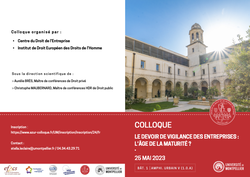
♾️ flollow Marie-Anne Frison-Roche on LinkedIn
♾️subscribe to the Newsletter MAFR Regulation, Compliance, Law
____
► Full Reference: M.-A. Frison-Roche, "Conclusions", in Ch. Maubernard et A. Brès (dir.), Institut de droit européen des droits de l'homme et Centre de droit de l'entreprise, Université de Montpellier, Le devoir de vigilance des entreprises : l'âge de la maturité?("The Entreprises duty of vigilance: the maturity age?") , Montpellier, May 25, 2023.
The conference is held in French.
____
🧮see the manifestation programme (in French)
___
🌐 read the report done on LinkedIn (in French)
___
► English summary of this final speech of the manifestation: It is rather difficult to draw a conclusion after listening so many contributions. For three reasons: firstly, because of their richness and extreme diversity; secondly, because of the fact that we do not know whether the duty of vigilance is under the French law of 2017 (known as the Vigilance Law) or in other national, European and international texts or beyond or below the legal rules; thirdly, because we do not know what is meant by the "maturity" of a legal concept. But in the end, since the question posed by the title itself of the colloquium is Duty of Vigilance: the age of maturity? the answer is clearly: no.
But this is regrettable. It is therefore essential to explore the ways in which the duty of vigilance can mature. If we find merit in this duty which has now entered the legal system, there are eight intersecting avenues, which must be exploited.
The first path is progression through the passage of time, rediscovering what in the past was already vigilance and what in the future will be its deployment.
The second way is to progress by fixing the vocabulary, because we are witnessing a great battle of words, overtly or covertly, in French or English.
The third path is progression through the emergence of principles, or even a principle, rediscovered or invented.
The fourth path is progression through coherence brought to the legal system(s), which at present suffer from gaps and inconsistencies, which could be remedied by methods such as centralising litigation or, more radically, ignoring borders.
The fifth path is progression through the fact that it works, because vigilance techniques are those of Compliance, of which vigilance is the leading edge, and the challenge is to find solutions.
The sixth path is progression through using power of the legal system not only to create new areas of relevance - starting with the notion of vigilance, but also that of the value chain - but also to impose new indifferences, namely indifference to the figure of the market (to which laws prefer the company and the value chain) and indifference to borders.
The seventh path is progression through bringing perspectives closer together, in order to find solutions even when interests are opposed. This is where the two techniques of contract and mediation are very welcome.
The eighth path is progression through culture, because the culture of vigilance, like the culture of compliance, must be developed within companies and supply chains, and must become common to them and their stakeholders.
____
________
April 20, 2023
Conferences
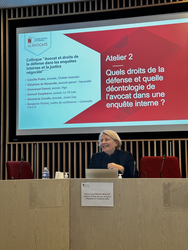
♾️ suivre Marie-Anne Frison-Roche sur LinkedIn
♾️s'abonner à la Newsletter MAFR Regulation, Compliance, Law
____
► Référence complète : M.-A. Frison-Roche, synthèses de chacune des 8 tables-rondes et synthèse finale, in Conseil National des Barreaux (CNB), L'avocat et les droits de la défense dans les enquêtes internes et la justice négociée, Paris, 20 et 21 avril 2023.
____
🧮Consulter le programme complet de cette manifestation
🧮Retrouver le programme dans lequel les vidéos sont insérées
📕Consulter une première présentation de l'ouvrage dirigé par Marie-Anne Frison-Roche et Matthieu Boissavy.
____
Dans la journée du 20 avril 2023
consacrée plus particulièrement aux enquêtes internes
🎥regarder le film de la première session, ayant pour thème : Des avocats dans les enquêtes internes : pourquoi, avec qui et avec quels outils ? cliquer ICI
____
🎥regarder le film de la deuxième session, ayant pour thème : Quels droits de la défense et quelle déontologie de l'avocat dans une enquête interne ? cliquer ICI
____
🎥regarder le film de la troisième session, ayant pour thème : Les enquêtes internes en matière sociale : cliquer ICI
____
🎥regarder le film de la quatrième session, ayant pour thème : Les enquêtes internes dans la lutte anti-corruption et pour le respect du devoir de vigilance : cliquer ICI (la synthèse porta à la fois sur cette 4ième session et sur l'ensemble de la journée)
________
Dans la journée du 21 avril 2023
consacrée plus particulièrement à la CJIP et à la CRPC
🎥regarder le film de la première session, ayant pour thème : Théorie et pratique de la négociation dans la justice pénale cliquer ICI
____
🎥regarder le film de la deuxième session, ayant pour thème : Le rôle du juge, du procureur, du justiciable et de l'avocat dans une CRPC et une CJIP cliquer ICI
____
🎥regarder le film de la troisième session, ayant pour thème : Combinaison des CRPC et des CJIP : enjeux, défis et perspectives cliquer ICI
____
🎥regarder le film de la quatrième session, ayant pour thème : Analyse comparative internationale de la justice négociée et prospective cliquer ICI
____
🎥regarder le film de la troisième session, ayant pour thème : Combinaison des CRPC et des CJIP : enjeux, défis et perspectives cliquer ICI
____
April 13, 2023
Conferences
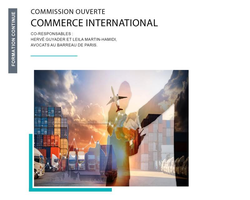
♾️ suivre Marie-Anne Frison-Roche sur LinkedIn
♾️s'abonner à la Newsletter MAFR Regulation, Compliance, Law
____
► Référence complète : M.-A. Frison-Roche, participation à la Table-Ronde sur La dynamique du Droit de la compliance, avec Clara Ingen-Housz, chief ethics and compliance officer, antitrust group legal counsel Saint-Gobain, et Hervé Guyader, avocat à la Cour et responsable de la commission Commerce international de l'Ordre des avocats du Barreau de Paris, Maison du barreau, 13 avril 2023.
____
____
présentation de l'intervention :
March 24, 2023
Conferences
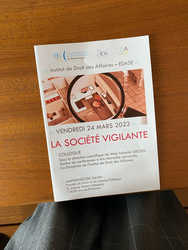
♾️ suivre Marie-Anne Frison-Roche sur LinkedIn
♾️s'abonner à la Newsletter MAFR Regulation, Compliance, Law
____
► Référence complète : M.-A. Frison-Roche, "synthèse", in I. Grossi (dir.), La société vigilante, Université d'Aix-Marseille, Institut de Droit des Affaires, 24 mars 2023.
____
____
🧮Consulter le programme complet de cette manifestation
____
Cette réflexion finale a servi de base à un article ; La vigilance, pièce du puzzle européen. Lire le document de travail sous-jacent.
____
► Présentation de la synthèse : La synthèse du colloque a été réalisée sur le vif, à partir des notes prises au fur et à mesure du déroulement de la journée. L'écoute des uns et des autres a fait ressortir 4 points qu'il aurait été difficile d'isoler dans une partie du droit positif, parce qu'il a été manifeste que les propos ont porté parfois sur la Compliance, parfois sure l'obligation de vigilance, parfois sur le devoir de vigilance et le plus souvent sur la loi du 27 mars 2017, laquelle a donc servi de porte d'entrée à l'ensemble des réflexions. Mais elle n'a été qu'une porte d'entrée.
Le premier point est justement l'impression d'une ampleur de tantôt de "gloire" et tantôt d'"indignité" qui ont été déversées sur cette loi Vigilance. Les intervenants ont donc fortement divergé.
Le deuxième point est l'impression à l'inverse générale et commune, pour que les orateurs s'en félicitent, s'en inquiètent, s'en réjouissent ou s'en effondrent, d'un grand mouvement auquel nous assistons et que la Vigilance traduit ou/et porte.
Le troisième point est la multiplicité des branches du Droit qui sont utilisées ou touchées, là encore qu'on s'en réjouisse ou pas, et la nécessité de dépasser ces branches du Droit. Face à la Vigilance, des disciplines peuvent apparaître en opposition, tandis que des branches du Droit semblent entrer comme en résistance. La majorité des intervenants ont souligné que les branches du Droit, cette loi n'étant alors que l'expression d'un mouvement plus vaste, la Vigilance dépassant la Loi Vigilance, sont activées et transformées. Il en est ainsi du Droit international et du Droit processuel. L'idée étant que la Vigilance pourrait bien être l'expression d'une branche du Droit spécifique et nouvelle : le Droit de la compliance. Au-delà de la compréhension de ce qui se passe, l'enjeu technique est d'articuler les branches du Droit concernées, notamment dans le rapport entre dispositions spéciales et principes, entre Droit spécial et Droit commun.
Le quatrième point est l'absence de définition de la vigilance. L'on en a peu davantage entendu de ce que pourrait être une "entreprise vigilante"...L'existence d'un devoir portant sur une situation précise suffit-elle à transformer toute l'entreprise et que devient-elle alors dans son entier ? Art pratique, le Droit n'aime pas les mystères. Car comment bien manier un instrument juridique dont la définition varie, dont on ne connaît que le régime, lequel varie au gré des réglementations, diverses et changeantes, ? Peut-elle varier selon les secteurs, selon les entreprises, selon les divers contrats qui sont partout ?
Peut-être, en conclusion et comme cela fût évoqué par certains, au-delà de la directive attendue sur la Corporate Sustainability Due Diligence, c'est plus largement dans le puzzle des définitions que le Droit de l'Union européenne est en train de construire, en corrélation avec le reporting extra-financier, que l'on pourra trouver, dans la conception systémique et humaniste portant l'identité européenne, voire sa souveraineté, ce qui donne sens et simplicité à la Vigilance.
____
✏️lire les notes prises sur le vif pour opérer la synthèse
____
📝lire l'article publié suite à cette conférence
________
March 24, 2023
Conferences

♾️ follow Marie-Anne Frison-Roche on LinkedIn
♾️subscribe Newsletter MAFR Regulation, Compliance, Law
____
► Full Reference: M.-A. Frison-Roche, "Propos introductifs : Les buts monumentaux de la vigilance" (Introductory remarks: The Monumental Goals of Vigilance), in La société vigilante ("The Vigilant Company"), Aix-Marseille University, Institut de Droit des Affaires, March 24, 2023.
____
This conference is done in French; read its English Summary below⤵️
🧮see the complete program of the manifestation (in French)
____
► English Summary of the conference: "Vigilance" is intriguing because, although it occurs in many branches of Law and is familiar in "banking compliance", in a form that is moreover reinforced since it is an obligation of vigilance on the part of the banker about a client whom he/she should "know", it is the "duty of vigilance" that made this notion famous. One could almost say scandalously famous because of a French law of 2017 that now bears its name, called the "Vigilance Law", whereas other laws bear the name of the minister who thought of it, which due diligence (vocabulary used for the European directive) does not erase.
The current challenge is to take the right measure of what "vigilance" is.
Vigilance goes beyond the French Loi Vigilance, which is not enough to express what it is in its few dispositions. To say what it is in the legal system, to use it in practice, to propose the intellectuel legal exercice of qualification, Vigilance must be thought of in Compliance Law, of which it is both a "Tool" and the most advanced point, as shown by the European Directive, whose discussions during its elaboration show these design issues.
Thus, like the whole of Compliance Law, Vigilance is understood, deployed, analysed and exercised through what underpins and gives meaning to all these constantly changing regulations, powers, and obligations, through Compliance Monumental Goals which give it stability and simplicity. This is the least that can be done in a mechanism that has the ambition to organise the "sustainability" of economic relations.
But while Vigilance expresses and concretizes Compliance Monumental Goals, it must not go beyond measure.
In fact, to set up structures, use tools and behave in such a way that human rights and nature are effectively and extraterritorially protected, both negatively and positively, these obligations of the company, which is the natural subject of the "duty", more generally the natural subject of Compliance Law, see its legal powers increased, these means being required for the company to fulfil its new obligations, first legal, then contractual, soon to be unilaterally formulated.
Perhaps we should conceive of a "vigilant company" and not just a company that, beyond and through its economic activity, cares for others and the world, but a company that "watches over" everything and on everything would be to go beyond the measure, to make companies the "regents" of the world and the people who live in it.
Faced with this perspective to be excluded, the construction of a Europe of Compliance, which does not be reduced to corruption fighting or environment protection, and draws on its humanist tradition, distinguishing itself in this respect from the American and Chinese compliance systems, is the major challenge.
Companies are not the alpha and omega, but they are one of the elements of an Alliance between the political Authorities and the population, its link, the one that allows us to escape from the limit of the territory, in what we call by this inadequate term of "extraterritoriality". It is rather a question of going beyond territories, required by the Compliance Monumental Goals of Compliance, of which Vigilance is the advanced point.
____
🚧read the English Working Paper, basis of this conference: "Vigilance, Compliance Monumental Goals, and "Vigilant Company""
____
📈see the slides created for this conference (in French)
____
📝read the article published after this conference
________
March 15, 2023
Conferences
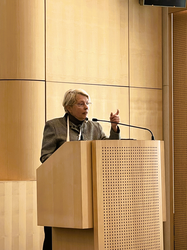
► Full reference: M.-A. Frison-Roche, "Pourquoi le Droit de la Compliance ?" ("Why Compliance Law?"), in Roman Aydogdu et Hans De Wulf (dir.), Bruxelles, 15 march 2023.
____
🧮Read the full programme of this event
________
March 15, 2023
Conferences
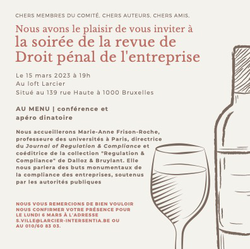
► Référence complète : M.-A. Frison-Roche, "Les Buts Monumentaux de la Compliance soutenus par les autorités publiques", in Revue Droit pénal de l'entreprise, La soirée de la Revue de Droit pénal de l'entreprise, Bruxelles, 15 mars 2023.
________
Feb. 2, 2023
Conferences
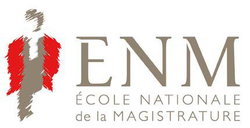
♾️ follow Marie-Anne Frison-Roche on LinkedIn
♾️subscribe to the Newsletter MAFR Regulation, Compliance, Law
____
► Full Reference : M.-A. Frison-Roche, "Droit de la compliance : Tour d'horizon" ("Compliance Law: Overview"), in Droit de la compliance (Compliance Law), French National School for the Judiciary (Ecole nationale de la magistrature - ENM), Paris, 2 February 2023.
This conference is given in French.
____
🧮See the full programme of this event
____
► Presentation of the conference:
Compliance Law is mysterious in itself, because it is still in creation, because its presence and power are felt, but it is difficult to grasp it. It is necessary, however, because it deals with the most important, even the most dramatic, facts and carries with it the greatest ambitions. Magistrates must also "make the effort" to participate in the "adventure of Compliance Law", because it affects, and even overturns, all subjects, and because the Prosecutor and the Judge play an increasing role in it.
Because the purpose of this conference is to introduce the two days of a training course designed for magistrates and open to lawyers, it only provides an "overview" of, so that we do not get lost in the sprawling regulations, the global mechanisms and the political ambitions that permeate them.
This is why, without going into any of the subjects, it is about opening up four ways of entering what is a branch of Law that is being born before our eyes:
1. Understanding Compliance Law through "regulations"
2. Understanding Compliance Law through "tools"
3. Understanding Compliance Law through "methods"
4. Understanding Compliance Law through "goals"
The four approches are legitimate because the four dimensions are articulated in positive Law.
But the more positive Law is consolidated, the more its normativity through the goals that give normativity, or even a simplicity without which the whole is not humanly controllable.
These Goals are monumental and Europe bears them more and better than other areas of the world.
____
🚧See the slides used as a support of the presentation (in French)
________